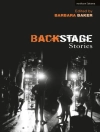Challenging established views and assumptions about traditions and practices of filmmaking in the African diaspora, this three-volume set offers readers a researched critique on black film.
Volume Two of this landmark series on African cinema is devoted to the decolonizing mediation of the Pan African Film & Television Festival of Ouagadougou (FESPACO), the most important, inclusive, and consequential cinematic convocation of its kind in the world. Since its creation in 1969, FESPACO’s mission is, in principle, remarkably unchanged: to unapologetically recover, chronicle, affirm, and reconstitute the representation of the African continent and its global diasporas of people, thereby enunciating in the cinematic, all manner of Pan-African identity, experience, and the futurity of the Black World.
This volume features historically significant and commissioned essays, commentaries, conversations, dossiers, and programmatic statements and manifestos that mark and elaborate the key moments in the evolution of FESPACO over the span of the past five decades.
İçerik tablosu
Dedication
Acknowledgments
Preface, by Ardiouma Soma
African Cinema and the Diasporic: Introductory Considerations, by Michael T. Martin and Gaston Jean-Marie Kaboré
Part I: Sites and Contexts of Exhibition
African Film Festivals in Africa: Curating ‘African Audiences’ for ‘African Films’, by Lindiwe Dovey
On Tracking World Cinema: African Cinema at Film Festivals, by Manthia Diawara
African Women on the Film Festival Landscape: Organizing, Showcasing, Promoting, Networking, by Beti Ellerson
African Cinema in the Tempest of Minor Festivals, by Sambolgo Bangre
Postcolonial Film Collaboration and Festival Politics, by Dorothee Wenner
Part II: FESPACO: An Evolving Cinematic and Cultural Formation
African Cinema and Festival: FESPACO, by Manthia Diawara
FESPACO: Promoting African Film Development and Scholarship, by M. Africanus Aveh
FESPACO and Cultural Valorization, by Mahir Saul
African Cinema: Between the ‘Old’ and the ‘New’, by Mbye Cham
Statement at Ouagadougou (1979), by Ousmane Sembene
A Name Is More Than the Tyranny of Taste, by Wole Soyinka
Cine-Agora Africana: Meditating on the Fiftieth Anniversary of FESPACO, by Aboubakar Sanogo
Cultural Politics of Production and Francophone West African Cinema: FESPACO 1999, by Teresa Hoefert de Turegano
A Mirage in the Desert? African Women Directors at FESPACO, by Claire Andrade-Watkins
Cabascabo, the Film That Lastingly Established FESPACO: An Interview with Alimata Salambere, by Olivier Barlet
The Long Take: Gaston Kaboré on FEPACI & FESPACO, by Michael T. Martin
Pressing Revelations: Notes on Time at FESPACO, by Rod Stoneman
Fifty Years of Women’s Engagement at FESPACO, by Beti Ellerson
Thiaroye or Yeelen? The Two Ways of African Cinemas, by Férid Boughedir
Long Live Cinema! Long Live FESPACO.: A Luta Continua!, by Claire Diao
Rethinking FESPACO As an Echo, by Michel Amarger
Going to the Cinema in Burkina Faso, by Mustapha Ouedgraogo
FESPACO Film Festival, by Colin Dupré
FESPACO and Its Many Afterlives, by Sheila Petty
Part III: Conditionalities and Challenges
Towards Reframing FESPACO, by Imruh Bakari
FESPACO Past and Future: Voices from the Archive, by June Givanni
The Opening of South Africa and the Future of African Film, by Mahir Saul
FESPACO 2019: Moving Toward Resurrection, by Olivier Barlet
Fifty Years of Memories for Shaping the Future!, by Rémi Abega
Part IV: Commentaries: Filmmakers, Film Scholars, and Media Professionals
Part V: Documents
Resolution on the Pan-African Film Festival of Ouagadougou (1972)
Regulations of the Carthage Film Festival (1970s)
Regulations of the Pan-African Film Festival of Ouagadougou (1980)
Regulations for the Official Juries of the 26th Edition of FESPACO (2019)
FESPACO Award Winners (1972-2019)
FESPACO 50th Anniversary Symposium (2019)
Manifesto of Ouagadougou (2017)
FESPACO Poster Gallery (1969-2019)
Organizing Themes of the FESPACO Festival (1973-2019)
Major Events of FESPACO (1969-2016)
The African Film Library of Ouagadougou
Dossier 1: Paul Robeson Award Initiative (PRAI)
Dossier 2: The Higher Institute of Image and Sound / Studio School (ISIS-SE)
Dossier 3: Imagine Film Training Institute
Power to the Imagination (2020), by Rod Stoneman
Founding Myths and Storytelling: The African Modern (2011), by Michael T. Martin
Yazar hakkında
Michael T. Martin is Professor of Cinema and Media Studies at the Media School at Indiana University, Bloomington. He is editor or coeditor of several anthologies, including (with David C. Wall) The Politics and Poetics of Black Film: Nothing But a Man and Race and the Revolutionary Impulse in The Spook Who Sat by the Door. Martin directed and coproduced the award-winning feature documentary on Nicaragua, In the Absence of Peace, distributed by Third World Newsreel. Gaston Jean-Marie Kaboré is a film director, producer, and screenwriter and the former director of the Centre National du Cinéma in Burkina Faso.












